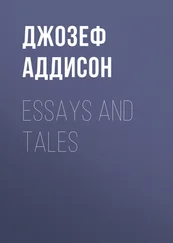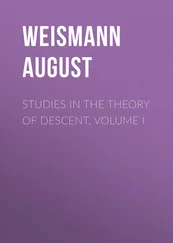Джозеф Аддисон - The Tatler, Volume 3
Здесь есть возможность читать онлайн «Джозеф Аддисон - The Tatler, Volume 3» — ознакомительный отрывок электронной книги совершенно бесплатно, а после прочтения отрывка купить полную версию. В некоторых случаях можно слушать аудио, скачать через торрент в формате fb2 и присутствует краткое содержание. Жанр: foreign_prose, foreign_antique, на английском языке. Описание произведения, (предисловие) а так же отзывы посетителей доступны на портале библиотеки ЛибКат.
- Название:The Tatler, Volume 3
- Автор:
- Жанр:
- Год:неизвестен
- ISBN:нет данных
- Рейтинг книги:4 / 5. Голосов: 1
-
Избранное:Добавить в избранное
- Отзывы:
-
Ваша оценка:
- 80
- 1
- 2
- 3
- 4
- 5
The Tatler, Volume 3: краткое содержание, описание и аннотация
Предлагаем к чтению аннотацию, описание, краткое содержание или предисловие (зависит от того, что написал сам автор книги «The Tatler, Volume 3»). Если вы не нашли необходимую информацию о книге — напишите в комментариях, мы постараемся отыскать её.
The Tatler, Volume 3 — читать онлайн ознакомительный отрывок
Ниже представлен текст книги, разбитый по страницам. Система сохранения места последней прочитанной страницы, позволяет с удобством читать онлайн бесплатно книгу «The Tatler, Volume 3», без необходимости каждый раз заново искать на чём Вы остановились. Поставьте закладку, и сможете в любой момент перейти на страницу, на которой закончили чтение.
Интервал:
Закладка:
I have premised these particulars before I enter on the main design of this paper, because I would not be thought altogether notional 50 50 Dealing in ideas instead of realities.
in what I have to say, and pass only for a projector in morality. I could quote Horace, and Seneca, and some other ancient writers of good repute, upon the same occasion, and make out by their testimony, that our streets are filled with distracted persons; that our shops and taverns, private and public houses, swarm with them; and that it is very hard to make up a tolerable assembly without a majority of them. But what I have already said, is, I hope, sufficient to justify the ensuing project, which I shall therefore give some account of without any further preface.
1. It is humbly proposed, that a proper receptacle or habitation be forthwith erected for all such persons as, upon due trial and examination, shall appear to be out of their wits.
2. That to serve the present exigency, the College in Moorfields 51 51 Bedlam; see No. .
be very much extended at both ends; and that it be converted into a square, by adding three other sides to it.
3. That nobody be admitted into these three additional sides, but such whose frenzy can lay no claim to an apartment in that row of building which is already erected.
4. That the architect, physician, apothecary, surgeon, keepers, nurses, and porters, be all and each of them cracked, provided that their frenzy does not lie in the profession or employment to which they shall severally and respectively be assigned.
N.B. It is thought fit to give the foregoing notice, that none may present himself here for any post of honour or profit who is not duly qualified.
5. That over all the gates of the additional buildings, there be figures placed in the same manner as over the entrance of the edifice already erected; 52 52 The statues by C. G. Cibber.
provided, they represent such distractions only as are proper for those additional buildings; as, of an envious man gnawing his own flesh, a gamester pulling himself by the ears, and knocking his head against a marble pillar, a covetous man warming himself over a heap of gold, a coward flying from his own shadow, and the like.
Having laid down this general scheme of my design, I do hereby invite all persons who are willing to encourage so public-spirited a project, to bring in their contributions as soon as possible, and to apprehend forthwith any politician whom they shall catch raving in a coffee-house, or any freethinker whom they shall find publishing his deliriums, or any other person who shall give the like manifest signs of a crazed imagination; and I do at the same time give this public notice to all the madmen about this great city, that they may return to their senses with all imaginable expedition, lest if they should come into my hands, I should put them into a regimen which they would not like; for if I find any one of them persist in his frantic behaviour, I will make him in a month's time as famous as ever Oliver's porter 53 53 See No. 51.
was.
No. 126
Anguillam caudâ tenes.—T. D'Urfey.
There is no sort of company so agreeable as that of women who have good sense without affectation, and can converse with men without any private design of imposing chains and fetters. Belvidera, whom I visited this evening, is one of these. There is an invincible prejudice in favour of all she says, from her being a beautiful woman, because she does not consider herself as such when she talks to you. This amiable temper gives a certain tincture to all her discourse, and made it very agreeable to me, till we were interrupted by Lydia, a creature who has all the charms that can adorn a woman. Her attractions would indeed be irresistible, but that she thinks them so, and is always employing them in stratagems and conquests. When I turned my eye upon her as she sat down, I saw she was a person of that character, which, for the further information of my country correspondents, I had long wanted an opportunity of explaining. Lydia is a finished coquette, which is a sect among women of all others the most mischievous, and makes the greatest havoc and disorder in society. I went on in the discourse I was in with Belvidera, without showing that I had observed anything extraordinary in Lydia: upon which, I immediately saw her look me over as some very ill-bred fellow; and casting a scornful glance on my dress, gave a shrug at Belvidera. But as much as she despised me, she wanted my admiration, and made twenty offers to bring my eyes her way: but I reduced her to a restlessness in her seat, an impertinent playing of her fan, and many other motions and gestures, before I took the least notice of her. At last I looked at her with a kind of surprise, as if she had before been unobserved by reason of an ill light where she sat. It is not to be expressed what a sudden joy I saw rise in her countenance, even at the approbation of such a very old fellow: but she did not long enjoy her triumph without a rival; for there immediately entered Castabella, a lady of a quite contrary character, that is to say, as eminent a prude as Lydia is a coquette. Belvidera gave me a glance, which methought intimated, that they were both curiosities in their kind, and worth remarking. As soon as we were again seated, I stole looks at each lady, as if I was comparing their perfections. Belvidera observed it, and began to lead me into a discourse of them both to their faces, which is to be done easily enough; for one woman is generally so intent upon the faults of another, that she has not reflection enough to observe when her own are represented. "I have taken notice, Mr. Bickerstaff," said Belvidera, "that you have in some parts of your writings drawn characters of our sex, in which you have not, to my apprehension, been clear enough and distinct, particularly in those of a prude and a coquette." Upon the mention of this, Lydia was roused with the expectation of seeing Castabella's picture, and Castabella with the hopes of that of Lydia. "Madam," said I to Belvidera, "when we consider nature, we shall often find very contrary effects flow from the same cause. The prude and coquette (as different as they appear in their behaviour) are in reality the same kind of women: the motive of action in both is the affectation of pleasing men. They are sisters of the same blood and constitution, only one chooses a grave, the other a light, dress. The prude appears more virtuous, the coquette more vicious, than she really is. The distant behaviour of the prude tends to the same purpose as the advances of the coquette; and you have as little reason to fall into despair from the severity of the one, as to conceive hope from the familiarity of the latter. What leads you into a clear sense of their character is, that you may observe each of them has the distinction of sex in all her thoughts, words and actions. You can never mention any assembly you were lately in, but one asks you with a rigid, the other with a sprightly air, 'Pray, what men were there?' As for prudes, it must be confessed, that there are several of them, who, like hypocrites, by long practice of a false part, become sincere; or at least delude themselves into a belief that they are so."
For the benefit of this society of ladies, I shall propose one rule to them as a test of their virtue. I find in a very celebrated modern author, that the great foundress of the Pietists, Madame de Bourignon, 54 54 Bayle, in his life of this devotee, 1697, says that Antoinette Bourignon was born at Lisle in 1616, so deformed, that it was debated for some days in the family, whether it was not proper to stifle her as a monster. Her deformity diminishing, they laid aside the thought. Although she was of a morose and peevish temper, and embroiled in troubles most part of her life, she seemed to be but forty years of age when she was above sixty; never made use of spectacles, and died at Franeker, in the province of Frise, in 1680. From her childhood to her old age she had an extraordinary turn of mind. She published a multitude of books, filled with singular doctrines, such as might be expected from a person who roundly asserted, on the express declaration, she said, of God Himself, "That the examination of things by reason, was the most accursed of all heresies, formal atheism, a rejection of God, and the substitution of corrupt reason in his place." She pretended to inspiration, and boasted of extraordinary communications with God; but appears to have been exceedingly defective in the essential duties of humility and charity. She was a woman of such ill conditions and odd behaviour, that nobody could live with her; and she seriously maintained, that anger was a real virtue. She contrived to accumulate money, but continued always uncharitable upon principle, alleging the errors of her understanding in defence of the inhumanity of her conduct.
who was no less famous for the sanctity of her life than for the singularity of some of her opinions, was used to boast, that she had not only the spirit of continency in herself, but that she had also the power of communicating it to all who beheld her. This the scoffers of those days called the Gift of Infrigidation, and took occasion from it to rally her face, rather than admire her virtue. I would therefore advise the prude, who has a mind to know the integrity of her own heart, to lay her hand seriously upon it, and to examine herself, whether she could sincerely rejoice in such a gift of conveying chaste thoughts to all her male beholders. If she has any aversion to the power of inspiring so great a virtue, whatever notion she may have of her perfection, she deceives her own heart, and is still in the state of prudery. Some perhaps will look upon the boast of Madame de Bourignon as the utmost ostentation of a prude.
Интервал:
Закладка:
Похожие книги на «The Tatler, Volume 3»
Представляем Вашему вниманию похожие книги на «The Tatler, Volume 3» списком для выбора. Мы отобрали схожую по названию и смыслу литературу в надежде предоставить читателям больше вариантов отыскать новые, интересные, ещё непрочитанные произведения.
Обсуждение, отзывы о книге «The Tatler, Volume 3» и просто собственные мнения читателей. Оставьте ваши комментарии, напишите, что Вы думаете о произведении, его смысле или главных героях. Укажите что конкретно понравилось, а что нет, и почему Вы так считаете.












